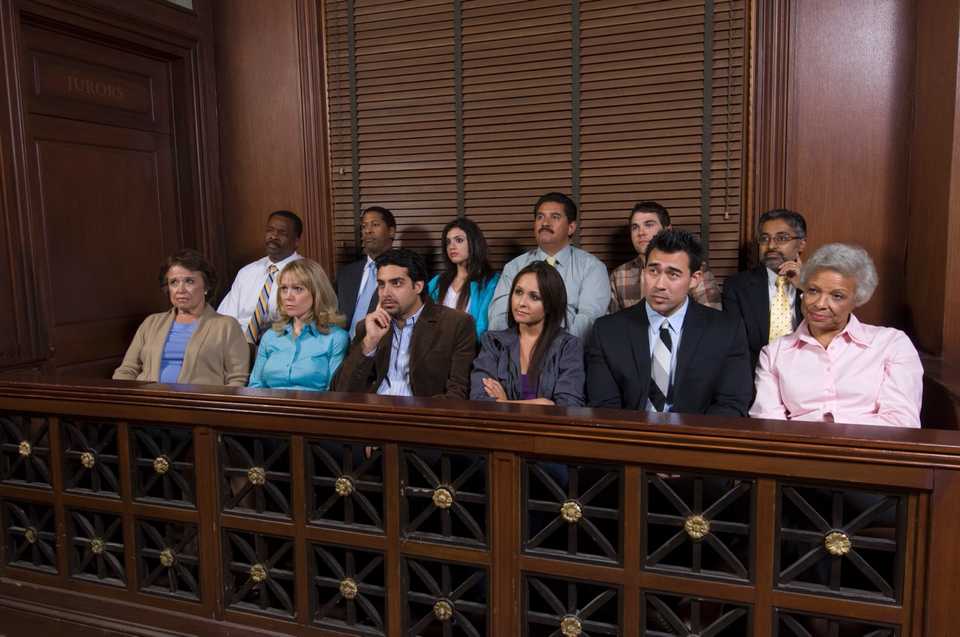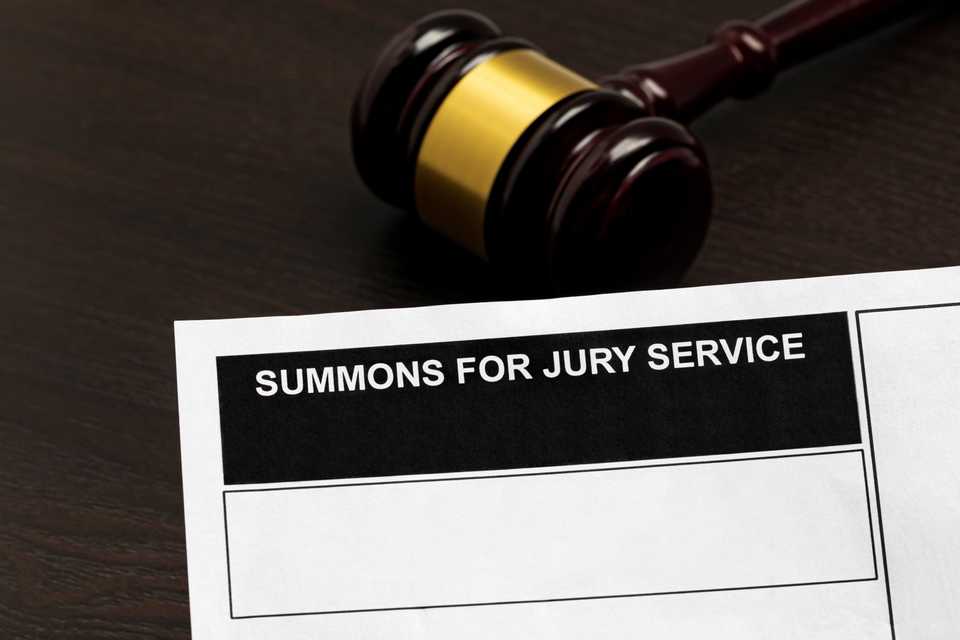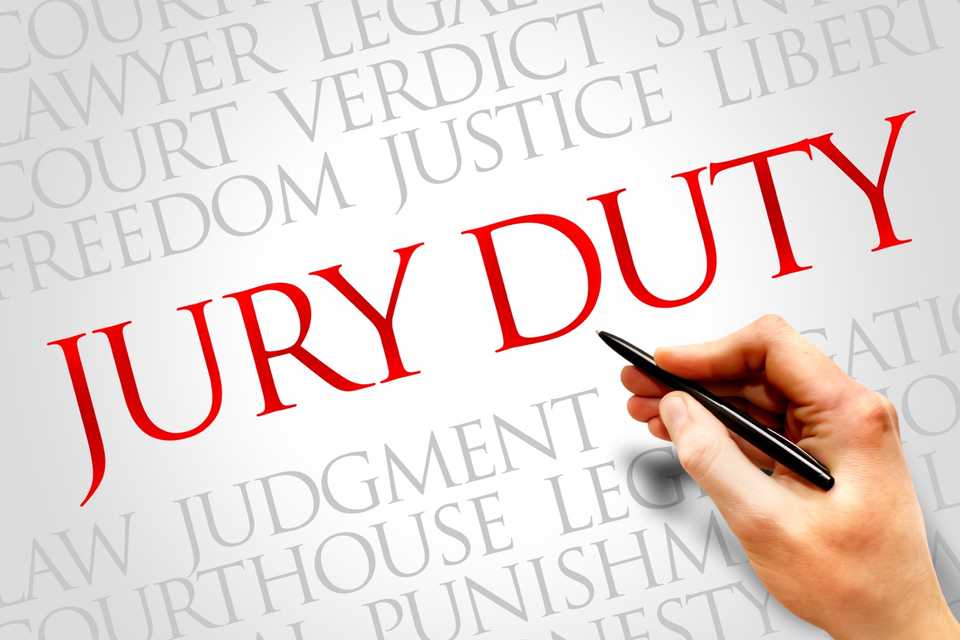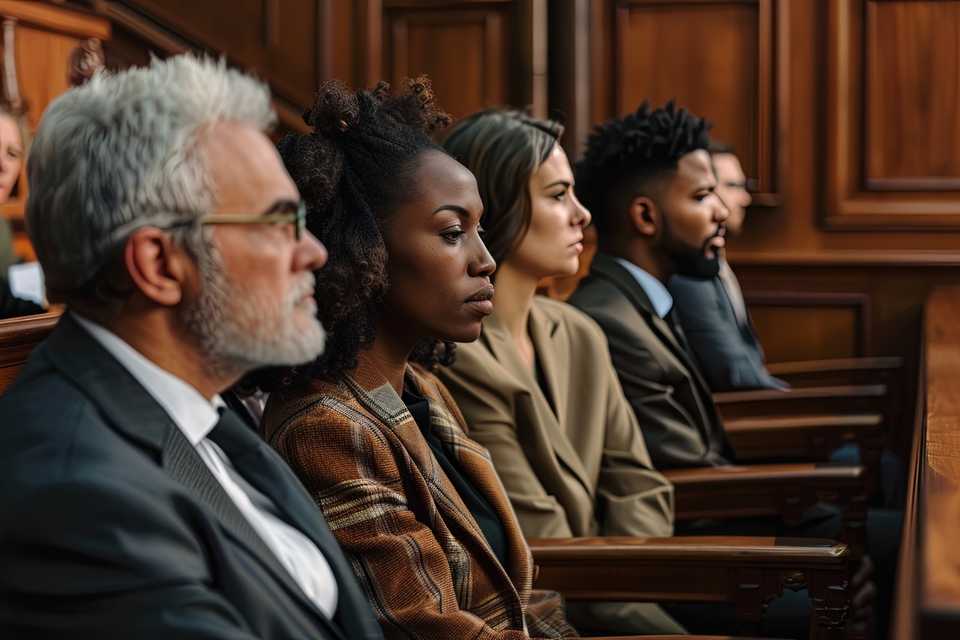Jury duty is a cornerstone of the Canadian legal system, with thousands of citizens being called to serve each year to fulfill this important civic responsibility.
In Ontario, as in other provinces, the jury system plays a key role in significant criminal and civil court cases by making sure that verdicts reflect the views of a diverse group of citizens, rather than relying solely on judges. This process is fundamental to maintaining a fair and impartial legal system.

| In this article, JuriGo explains you everything you need to know on the duty of a Jury in Ontario. |
|---|
What is a Jury?
A jury is a group of citizens selected to participate in a legal proceeding, typically in a criminal or civil trial. The jury's primary responsibility is to listen to the evidence presented during the trial, consider the facts, and ultimately decide on a verdict based on the law as instructed by the judge.
Jury duty is the civic obligation that requires eligible citizens to serve as jurors if selected.
In Ontario, as well as in other parts of Canada, jury duty is crucial because it allows ordinary citizens to have a direct hand in the administration of justice. By participating in this process, jurors help ensure that trials are fair and impartial, reflecting the community's standards and values.
In criminal trials, the jury's role is to determine the guilt or innocence of the accused, while in civil trials, the jury may decide on liability and, in some cases, the amount of damages to be awarded. The collective judgment of a jury is seen as a reflection of societal standards, which adds an additional layer of credibility and legitimacy to the court’s verdict.
Who can be a juror in Ontario?
To ensure that the jury is truly representative of the community, Ontario has specific eligibility criteria for those who may be called to serve. Generally, to be eligible for jury duty, individuals must:
- Be a Canadian citizen
- Be at least 18 years old
- Reside in Ontario
- Be proficient in either English or French, as trials are conducted in these languages
However, certain individuals are exempt from serving on a jury due to their occupations, which may present a conflict of interest or hinder their ability to perform juror duties. These exemptions include:
- Legally qualified medical practitioners (members of the College of Physicians and Surgeons) actively engaged in practice
- Veterinary surgeons actively engaged in practice
- Coroners
- Police officers
- Firefighters regularly employed by a fire department
- Lawyers or law students

- Superintendents, jailers, or keepers of prisons, correctional institutions, or lock-ups
- Wardens of penitentiaries
- Sheriffs or sheriff’s officers
- Members of the regular and special armed forces, and members of the reserve forces on active service
- Officers of a court of justice
- Judges or justices of the peace
- Members of the Privy Council of Canada, the Executive Council of Ontario, the Senate, the House of Commons, or the Legislative Assembly of Ontario
These exemptions help maintain the impartiality and fairness of the jury process by excluding individuals whose professional duties or positions might unduly influence the proceedings.
Additionally, those with physical or mental disabilities that prevent them from performing the duties of a juror, or those who have been convicted of certain criminal offences, may also be disqualified.
How Are Jurors Selected?
The selection process begins with the random drawing of names from the electoral list. Those selected will receive a jury duty summons, which provides details on when and where to report for potential jury service.
It's important to note that receiving a summons does not guarantee that an individual will serve on a jury. It simply means that they have been selected to participate in the jury selection process.
| What is a Jury Duty Summons?Receiving a jury duty summons can be a surprise for many, but it's important to understand what this document entails and the responsibilities it imposes.A jury duty summons is a legal document that notifies an individual that they have been selected for possible jury service. The summons includes important information, such as:The date and time to appear at the courthouseThe location of the courthouseInstructions on what to do if unable to attendFailing to respond to a jury duty summons can result in legal consequences, including fines or other penalties. Therefore, it is crucial to take this document seriously. |
|---|

How to Respond to a Summons?
Upon receiving a jury duty summons, the individual must confirm their availability. If they are unable to attend due to a valid reason, such as :
- Medical conditions: Individuals with serious health issues may be exempted if they provide appropriate documentation from a healthcare professional.
- Financial hardship: Serving on a jury can cause financial strain, especially for those who are self-employed or who do not receive paid leave from their employer. In such cases, the court may consider an exemption or deferral.
- Pre-existing commitments: If a person has significant pre-existing commitments, such as travel plans or caregiving responsibilities, they may request a deferral.
In some cases, the court may grant a deferral or exemption, but this is not guaranteed! To request an exemption, the individual must provide a valid reason and supporting documentation. The court will review the request and decide whether to grant the exemption. It's important to submit these requests as soon as possible after receiving the summons to allow time for processing.
The Jury Selection session (Voir Dire)
When individuals are summoned for jury duty, they must attend a selection session at the courthouse. This session, known as voir dire, is where potential jurors are assessed to determine their suitability for serving on a jury.
During this process, potential jurors are questioned by the judge and the lawyers representing both sides of the case. The goal is to identify any biases or preconceived notions that could affect the juror's ability to remain impartial. Questions may cover a range of topics, including:
- The juror's background and occupation
- Their knowledge of the case or the parties involved
- Any personal experiences that might influence their judgment
The jury selection process is a critical step in ensuring that a fair and impartial jury is chosen for a trial. This process involves several stages and careful consideration by both the defence and the prosecution.

Challenges for Cause and Peremptory Challenges
There are two main types of challenges that can be used to exclude potential jurors:
| Type of challenge | Explanation |
|---|---|
| Challenges for cause | A challenge for cause is used to exclude a potential juror based on a specific reason that suggests the juror cannot be fair and impartial.Examples:If a juror has a personal connection to one of the parties in the case (a close friend or relative), their ability to remain unbiased might be compromised.If a juror has a strong opinion about the case or its issues that could affect their judgment, they may be challenged for cause. |
| Peremptory challenges | A peremptory challenge allows each side in a trial to exclude a certain number of potential jurors without giving a reason.This type of challenge gives lawyers the flexibility to exclude jurors they feel might be unfavourable or not ideal for their case, based on gut feelings or strategic considerations. Unlike challenges for cause, lawyers do not need to provide a reason or justification for using a peremptory challenge.Each side is allotted a limited number of peremptory challenges, meaning they cannot use them to exclude an unlimited number of jurors. |
Both types of challenges are designed to ensure that the jury is fair and impartial, which is essential for a just trial.
Once the selection process is complete, the final jury is typically composed of 12 members in criminal trials, although this number can vary in civil cases. These jurors are then sworn in and begin their service, which involves listening to the evidence presented during the trial, deliberating as a group, and ultimately reaching a verdict.
What Are the Responsibilities and Expectations of Jurors?
Serving on a jury is a serious commitment that requires jurors to adhere to strict guidelines to ensure the fairness of the trial. During the trial, jurors are expected to:
- Pay close attention to the evidence presented.
- Follow the judge’s instructions regarding the law.
- Refrain from discussing the case with anyone outside the jury until deliberations are complete.
- Avoid exposure to media coverage or other external influences that could bias their judgment.
In addition to these responsibilities, jurors must also be prepared to deliberate with their fellow jurors to reach a consensus. Deliberations are confidential, and jurors are encouraged to express their opinions freely while considering the perspectives of others. The goal is to arrive at a unanimous verdict, although in some civil cases, a majority decision may be accepted.
Once a decision has been reached, the jury returns to the courtroom to deliver the verdict. The foreperson, who acts as the spokesperson for the jury, announces the decision to the court.

The judge will then take the necessary legal steps based on the jury's verdict, which could include sentencing or acquittal. It's important to note that the jury's role ends with the delivery of the verdict, the sentencing is the responsibility of the judge.
What is Jury Duty Compensation?
In Ontario, jurors receive a nominal fee for their service, with compensation varying based on the duration of the trial. The compensation structure is as follows:
- Day one to ten: Jurors do not receive a fee for the first ten days of service.
- Day 11 to 49: From the eleventh day to the forty-ninth day of service, jurors are compensated at a rate of $40 per day.
- Day 50 to the last day of trial: For trials that last fifty days or more, which are rare, jurors receive a higher compensation rate of $100 per day starting from the fiftieth day until the trial concludes.
In addition to the daily fees, jurors may be reimbursed for certain expenses incurred during their service. This often includes transportation costs associated with commuting to and from the courthouse. Jurors should keep receipts and records of these expenses to submit for reimbursement.
What Challenges Do Jurors Face?
Serving as a juror is a significant civic duty that plays a crucial role in the justice system. However, jurors often face a variety of challenges that can impact them in multiple ways. Understanding these challenges can help prepare potential jurors for what to expect and how to manage their responsibilities.
- Emotional impact:
Jury duty can be emotionally taxing, especially in trials involving serious criminal charges or distressing evidence. The process of evaluating evidence and making decisions that affect another person's life can lead to significant stress and anxiety. Jurors may experience mental strain from the gravity of their role, which can affect their overall well-being during and after the trial.
- Time commitment:
Jury duty often requires a considerable time commitment, which can disrupt jurors' work schedules, family life, and personal routines. The demands of serving on a jury can interfere with regular work hours, making it challenging for those with jobs or personal commitments to balance their responsibilities.
Also, the duration of a trial can vary, and extended periods of jury service can add to the burden, especially if the trial lasts several weeks or months.
- Logistical challenges:
Jurors may face difficulties related to commuting to and from the courthouse. Travel can be particularly challenging for those living far from the court or without reliable transportation. Additionally, finding suitable childcare or arranging for family care during jury duty can be a logistical and financial challenge for jurors with dependents.
Although Ontario provides a small daily stipend for jurors, it may not fully cover lost wages or other expenses incurred while serving. Jurors might need to manage financial adjustments to compensate for the period they are unable to work.

In summary, while jury duty is an essential part of the legal system, it presents a range of challenges that can affect jurors both personally and professionally. From emotional and psychological strain to practical issues related to time, travel, and finances, understanding these challenges can help jurors better prepare for their service and address any difficulties that arise.
What Are the Legal Protections and Support for Jurors?
Recognizing the challenges faced by jurors, the Ontario legal system provides several protections and support mechanisms to assist those called to serve. These measures aim to ensure that jurors can fulfill their duties without undue hardship.
| Legal protection and support | Explanation |
|---|---|
| Employment Protection | Ontario law ensures that employees who are called for jury duty are protected from job loss or demotion. Employers are legally prohibited from penalizing employees for attending jury duty. This protection includes preventing termination, demotion, or any other form of punishment related to jury service.While employers must allow employees to attend jury duty without repercussions, they are not obligated to continue paying employees during this period. Jurors should review their employer's policy on jury duty leave to understand how their pay and benefits will be affected. |
| Counselling Services | To assist jurors who may experience emotional distress from their service, Ontario provides access to counselling services. These resources are available to help jurors cope with the psychological impact of their duties and ensure they receive the support they need. |
| Confidentiality | Jurors are entitled to confidentiality regarding their service. This means that their participation in jury duty should not be disclosed without their consent. Additionally, there are protections against harassment or intimidation related to jury service, ensuring a safe and respectful environment for all jurors. |
Overall, these legal protections and support mechanisms are designed to help jurors manage their civic responsibilities while minimizing personal and professional disruptions.
What Are the Frequently Asked Questions About Jury Duty?
Despite the crucial role of jury duty in the legal system, many individuals have questions about what to expect and how to navigate the process. This section addresses some of the most common queries regarding jury duty.
What Should I Bring to Court?
When attending court for jury duty, it is important to be prepared. Here’s what you should bring:
- Your jury summons: This document contains essential information about your jury duty and must be presented upon arrival at the courthouse. It provides details about where and when to report, as well as any instructions you need to follow.
- Identification: A government-issued ID is required to verify your identity. This ensures that you are the person summoned for jury duty and helps maintain the integrity of the process.
It’s important to mention that Jurors should avoid bringing items that could be disruptive, such as electronic devices that make noise. Additionally, food and drinks are generally not allowed in the courtroom, though there are usually scheduled breaks during the day when you can eat or drink.
What If I Have an Emergency During Jury Duty?
If an emergency arises while you are serving on a jury, it is crucial to inform the court immediately. The court will provide instructions on how to handle the situation, and depending on the nature of the emergency, you may be excused, or your service may be postponed.
- Types of emergencies: Emergencies might include sudden illness, a family crisis, or other unexpected events that require immediate attention. The court understands that such situations can occur and will work with you to address them as appropriately as possible.

- Reporting an emergency: Notify the court as soon as possible to explain your situation. The court staff will guide you through the process for handling your emergency and making any necessary adjustments to your jury service.
Can I Be Recalled for Jury Duty After Serving?
Yes, it is possible to be summoned for jury duty more than once. However, there is typically a gap of several years between services to avoid frequent interruptions to individuals' personal and professional lives.
- Frequency of summons: The likelihood of receiving another jury duty summons depends on various factors, including the needs of the court and the size of the eligible population in your area. Jurors who have recently served may be eligible for an exemption or deferral if called again within a short period.
- Exemptions and deferrals: If you have served on a jury recently, you may be able to request an exemption or deferral if you are summoned again.
Have you been selected to serve on a jury? JuriGo can help you find a lawyer!
If you’ve been selected to serve on a jury for a civil or criminal case, it can be beneficial to seek advice from a lawyer specialized in the relevant field. Jury duty is a significant civic responsibility, and having legal counsel can help you navigate the complexities of the case you are involved in.
A specialized lawyer can provide guidance on the intricacies of the legal proceedings, ensuring you understand your role and responsibilities fully. This support not only helps you fulfill your duties with greater confidence but also ensures that your participation contributes effectively to the fairness and integrity of the legal process.
Whether you are a first-time juror or have previous experience, consulting a lawyer can enhance your understanding and help you engage more meaningfully in the administration of justice. JuriGo can assist you in finding a qualified lawyer to provide the necessary support during your jury service!

JuriGo provides a simple, fast, and free solution for finding a lawyer! Our service is confidential, free of charge, and requires no commitment.
Simply fill out our request form, detailing your situation, and we will promptly connect you with a lawyer in your area. Get started on your defence quickly and easily with JuriGo!
